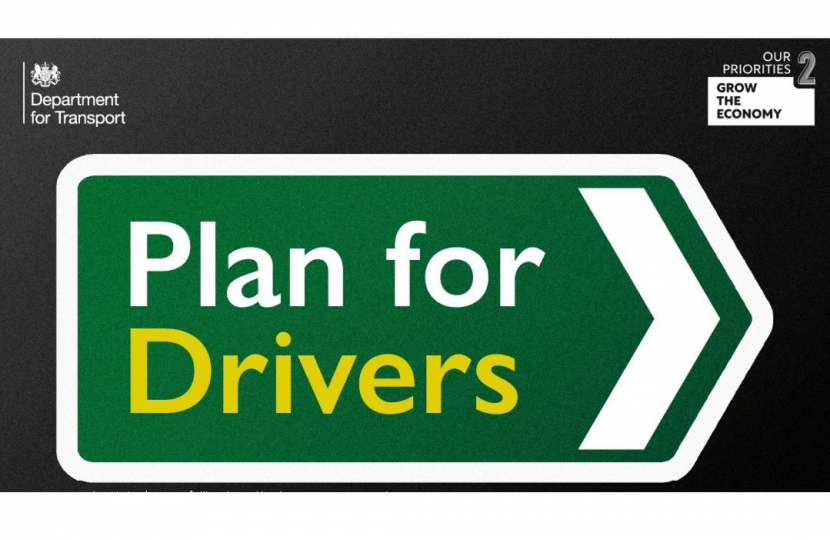
We have all been in the car, trying to get where we need to be while noticing the roadworks which should have already finished are still going.
It is always a source of frustration and it is time for action to address it.
As part of the Plan for Drivers to support people’s freedom to use their own cars, the Department for Transport have launched proposals to cut traffic caused by ongoing roadworks with enhanced fines for utility companies causing them.
Currently, the £10,000 per day fine for overrunning roadworks only applies on working days. Under the proposals this would be extended to cover weekends and bank holidays as an enhanced deterrent for such works taking place on the busiest days for road travel.
Measures could also double fines up to a maximum of £1,000 for companies breaching conditions of the job, such as working without a permit.
There are also plans to ensure more targeted use of funds generated from lane rental schemes, which permit local highway authorities to charge firms for the time that street and roadworks occupy the road.
Under the proposals, at least half of money from such lane rental schemes would be used to enhance roads and fix potholes.
These measures could generate up to an extra £100 million over a decade to resurface roads, while at the same time tackling congestion and reducing journey times.
The public consultation on these measures can be found on the ‘Policy papers and consultations’ page of the Department for Transport website: www.gov.uk/dft.
Respondents can fill in the online questionnaire or complete a form which can be returned via email: [email protected] or through the post: Street Works team, Department for Transport, 3rd Floor Great Minster House, 33 Horseferry Road, London SW1P 4DR; before the consultation closes on 11th March.
Other measures which the Secretary of State for Transport briefed me on last week include making all temporary, experimental or permanent restrictions on traffic available digitally.
These ‘Traffic Regulation Orders’ include locations of parking spaces, road closures and speed limits. By ensuring these are available digitally, the most up-to-date information can be made available for drivers so that their journeys will be reliable and more predictable, as well as having a better idea of where to park.
In November it was confirmed that West Sussex will receive more than £67.6 million of funding from Government over the course of a decade to repair our roads.
This includes over £2.1 million for this financial year and also for 2024-25, as part of a long-term funding plan through to 2034.
Across England £8.3 billion is being made available to improve roads – the largest ever funding boost for local highways.
Henry Smith MP

